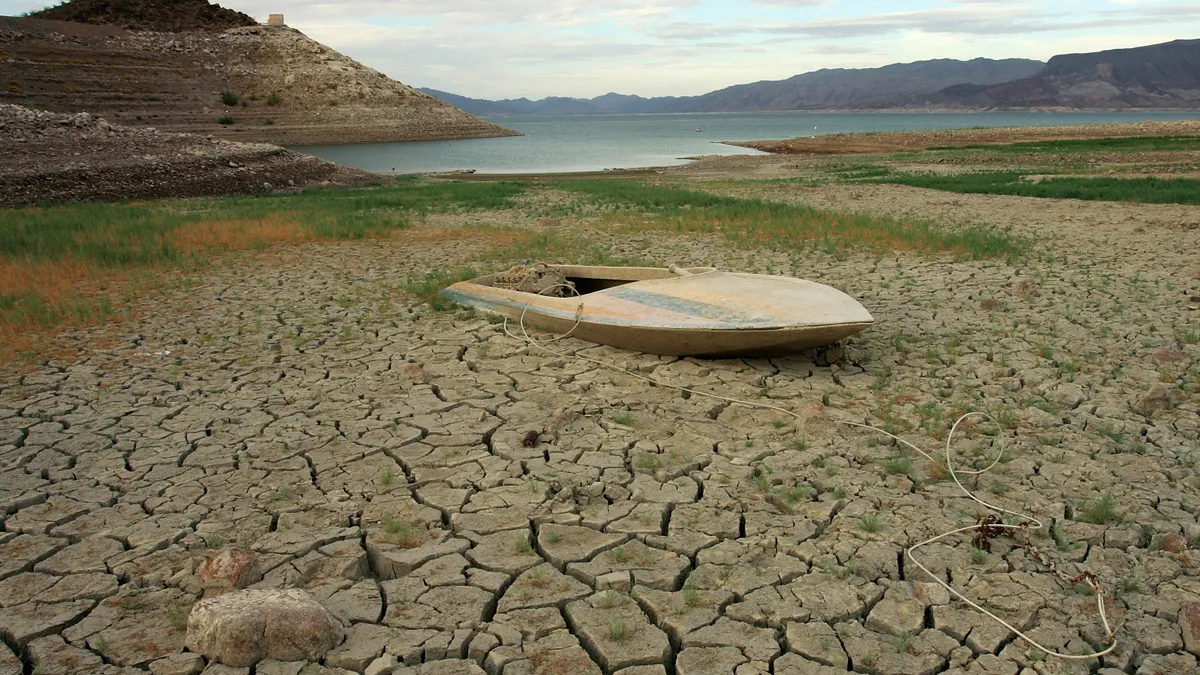Dive Brief:
- Environmental nonprofit Sierra Club said public pension funds in states with Democratic leadership are not taking necessary steps to address the climate crisis and reduce climate-related financial risk, in a report published Tuesday.
- The report analyzed proxy voting records, proxy guidelines and voting transparency of 24 public pensions across New York City and 16 states, including California, Colorado, Connecticut, Delaware, Illinois, Maine, Maryland, Massachusetts, Minnesota, Nevada, New Mexico, Oregon, Rhode Island, Vermont, Washington and Wisconsin. The funds collectively represent over $2 trillion in assets under management.
- On proxy voting guidelines, no pensions received an “A” grade, though three New York City systems — New York City Employees' Retirement System, Teachers' Retirement System and Board of Education Retirement System — received “B” grades based on strong performance in systematic risk, climate and climate lobbying resolutions. Half of the pensions analyzed, however, received “F” grades.
Dive Insight:
According to the nonprofit, failing to curb climate-related financial risk not only makes addressing the climate emergency harder, but also “puts the hard-earned savings of millions of Americans at risk.”
The analysis drew on pensions from states where a state financial officer — such as the state treasurer, comptroller, or auditor — has indicated it is a priority issue to advocate for more sustainable, inclusive firms and markets to provide protection against climate risk. In addition to these, Sierra Club focused on the five systems managed by the New York City Comptroller, who has recognized climate change to be a “systematic and material investment risk” to the economy.
The report — which also has contributions from the Stop the Money Pipeline coalition and the Climate Finance, Stand.earth campaign — found that far too many pension funds were not carrying out their fiduciary duty to clients by ignoring climate change, and stressed all could do more to protect their beneficiaries from growing environment-related financial risks.
“As stewards of trillions of dollars, how these pensions vote makes a difference,” Jessye Waxman, senior campaign strategist in the Fossil-Free Finance campaign at Sierra Club, said in a press release. “By making the responsible choice to use their proxy voting authority to hold companies accountable for their negative climate impacts, pensions can not only protect the retirement savings of their beneficiaries from the financial repercussions of climate change, but do their part to help hit global climate goals.”
Sierra Club said the pensions analyzed should update and strengthen their proxy voting guidelines, and use those guidelines to direct their voting practices in 2024 and beyond, in order to better mitigate climate risks. The nonprofit even pointed to some pensions to follow the recommendations outlined in the report ahead of updating their proxy voting guidelines.
Some of the recommendations put forward by the nonprofit include adopting a universal owner or systematic risk framework to guide proxy voting; pairing proxy voting guidelines with portfolio management policies to address a company’s lack of response to escalating risks; and even amending guidelines to ensure support for climate-related resolutions and to enable votes against board members at companies that have failed to disclose or adopt climate- and biodiversity-related targets.
The nonprofit also encouraged pensions to implement policies that required asset managers to have a public plan on how to achieve net-zero emissions across their entire portfolios, including stems for the near-term to reach science-based targets and regularly report on scope 3 emissions.
Per Sierra Club’s findings, four state pension systems based in Massachusetts, Oregon, and California, and all of New York City’s five pension systems received “A” grades for their proxy voting records, based on how often they supported climate-related resolutions and opposed directors failing to mitigate climate risk, but pensions in Rhode Island, Minnesota and Wisconsin — including one pension in Illinois — received “B” grades. Pension systems based in Colorado, New Mexico, Maine, Nevada — along with one pension in Illinois — received “F” grades for their voting records.
“How pensions vote at annual shareholder meetings may be the most important climate votes that you’ve never heard of,” Alec Connon from Stop the Money Pipeline said in the release. “Unfortunately, far too many pensions are regularly voting against climate action. If we’re to have any hope of achieving global climate goals, that needs to change.












